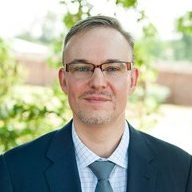It’s common to hear people accuse Christianity of being “anti-science” or to hear about the war between religion and science. In recent years, certain prominent atheists have claimed that reason and science are at odds with religion, which they class as superstition. Is there a genuine conflict between science and religion?
The most common areas of conflict between Christianity and science are over the matters of origins, and over the makeup of man. Evolution versus creation, and the nature of the human being (when life begins and ends, whether sexuality is genetic, whether depression is organic, whether we have a soul), are the most frequent battlefields.
In reality, the term science is too great a generalization to be helpful. Rightly defined, science is a method of investigating the world. It is a procedure, not a philosophy. The procedure is made up of three parts:
- Observing phenomena
- Developing explanatory hypotheses that are predictive in nature
- Testing the hypotheses by repeatable experimentation
Anything which claims to be scientific should be able to show that it is operating according to those three stages of the scientific theory. By that definition, theories of origins are not empirical science, but theories of history.
The dividing line between secular science and the Bible is the controlling presupposition. This is the worldview or assumptions that the scientist has before he even begins studying phenomena. Two presuppositions that are particularly hostile to Christianity are naturalism and scientism.
Naturalism
This is the view that reality is essentially made of matter (no soul, spirits, etc.) On this view, we explain the “natural” world only by what we find within the natural world. We cannot assume or even allow explanations from beyond or outside of nature — “super-nature/supernatural.”
Consider this telling quote by a famous geneticist:
We take the side of science in spite of the patent absurdity of some of its constructs, in spite of its failure to fulfil many of its extravagant promises of health and life, in spite of the tolerance of the scientific community for unsubstantiated just-so stories, because we have a prior commitment, a commitment to materialism. It is not that the methods and institutions of science somehow compel us to accept a material explanation of the phenomenal world, but, on the contrary, that we are forced by our a priori adherence to material causes to create an apparatus of investigation and a set of concepts that produce material explanations, no matter how counterintuitive, no matter how mystifying to the uninitiated. Moreover, that materialism is absolute, for we cannot allow a Divine Foot in the door. . . . To appeal to an omnipotent deity is to allow that at any moment the regularities of nature may be ruptured, than miracles may happen.” Richard Lewontin, “Billions and Billions of Demons,” in the New York Review of Books, January 9, 1997.]
Scientism
Scientism is different from science in that scientism is an attitude towards knowledge and ultimate questions. Scientism claims that the scientific method is the only safe and sure way of knowing reality, and all other ways are childish, foolish, dangerous superstitions. Scientism is a profound arrogance: believing it can answer questions which the scientific method could never come close to explaining: God’s existence, the nature of good and evil, the nature of beauty, the origin of the universe, life after death. It believes that it can collect enough facts to ultimately answer all the great questions. But the more science discovers, the more complex the universe becomes, and the questions multiply faster than the answers. Man will never collect even a fraction of the facts needed to understand the web of facts that makes up the universe.
In truth, empirical science gives much glory to God. The fact that scientists expect their experiments to be repeatable assumes that the universe is orderly. It was Christianity’s assumption that the world functioned according to the orderliness of a Creator’s commands that led to the science of Isaac Newton and others.
How Should Christians View Science?
On the one hand, we should be thankful for everything that a true scientific method reveals. It brings glory to our Creator, for the Earth is His (Ps 24:1). On the other hand, we must recognize that the world is at war with God, and it will use a God-given method as an excuse to suppress the truth in unrighteousness (Rom 1:18–21).
We must also challenge the idea that facts are separate from faith, or that science is objective while faith is subjective. When science claims authority which only God’s Word has, Christians should challenge this. The Bible gives us the Creator’s personal statement about the created order. The Bible is not meant to be textbook on scientific phenomena, but all interpretations of created phenomena can be judged within the grid of God’s Word.
Christians who enter the sciences can do so for the glory of God. We need Christian botanists, paleontologists, astronomers, physicists, etc. We need them to bring the Christian alternative to their investigations, and present these, both to challenge the existing order, and to strengthen the faith of Christians.
We must teach our children the very clear distinction between the scientific method, and the anti-god philosophy posturing as science. It is crucial they receive this understanding before they enter their university years, particularly if their vocational training will be in the sciences or the humanities.




